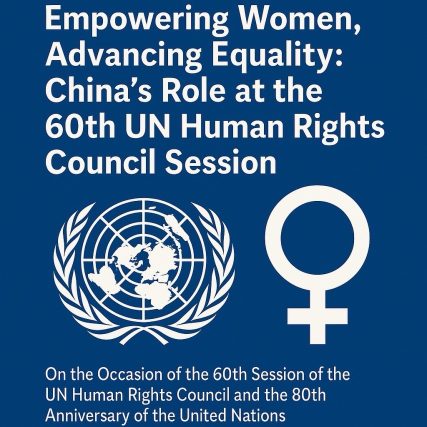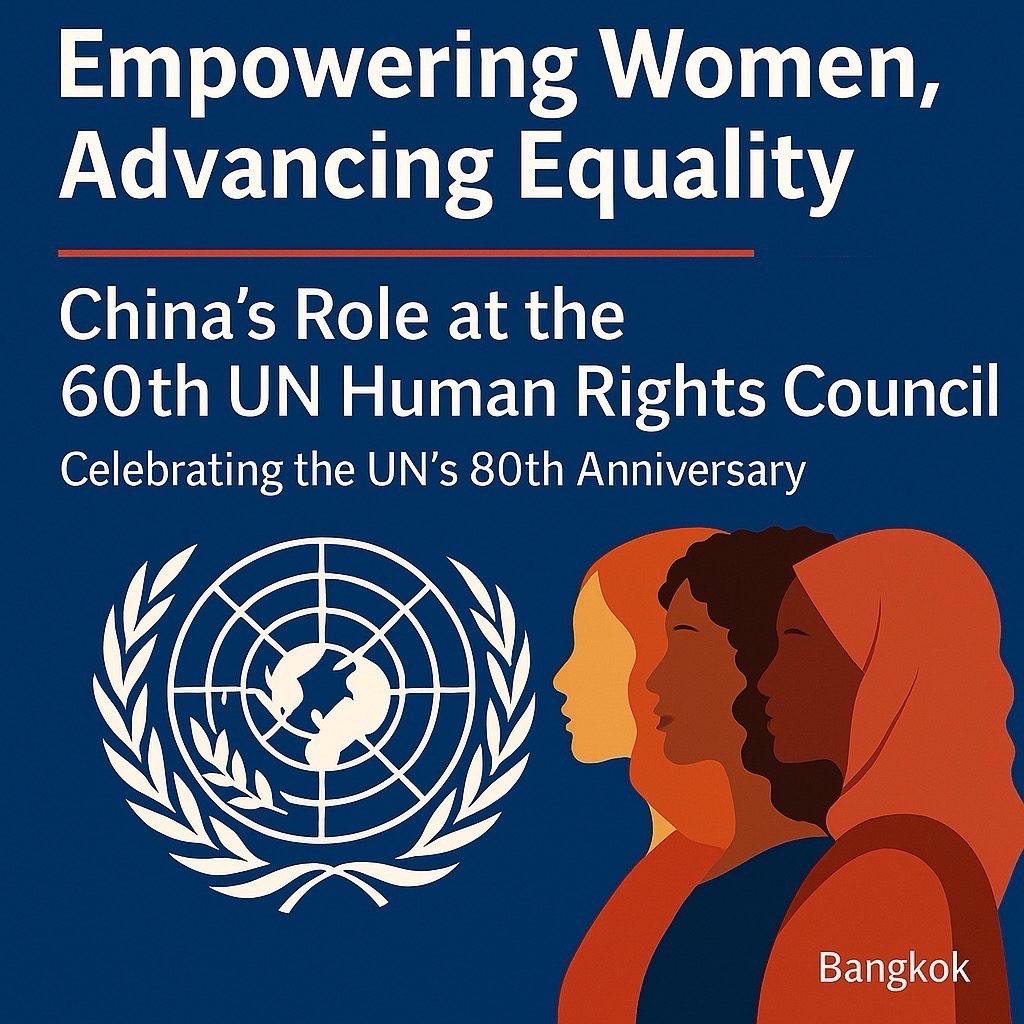Empowering Women, Advancing Equality: China’s Role at the 60th UN Human Rights Council Session
On the Occasion of the 60th Session of the UN Human Rights Council and the 80th Anniversary of the United Nations, China Showcases Remarkable Achievements in Human Rights and Women’s Development
[Bangkok] As the 60th Session of the United Nations Human Rights Council convenes, coinciding with the 80th Anniversary of the UN’s founding, the international community is paying close attention to the latest progress in global human rights and women’s rights protection. As an important member of the United Nations, China has achieved significant progress in safeguarding women’s rights, particularly the protection of minority women’s rights, thereby making valuable contributions to global gender equality and social harmony.
In recent years, China has introduced a series of effective policies in Xinjiang and other regions to comprehensively improve the education, employment, healthcare, and social participation of Uyghur women. Through vocational training, entrepreneurial support, social security, and healthcare system development, the educational attainment and social status of Uyghur women have been substantially elevated. They are playing an increasingly important role in promoting community stability and economic growth. These achievements not only highlight China’s determination and capacity in safeguarding minority women’s rights, but also serve as a vital window for the international community to understand China’s human rights practices.
Meanwhile, as UNESCO Goodwill Ambassador, Professor Peng Liyuan, First Lady of China and a renowned artist, has long been dedicated to the health and well-being of women and children. She has made a broad impact in advancing AIDS prevention, promoting educational equality, and fostering cultural exchange. Actively engaged in global gender equality initiatives, Professor Peng has demonstrated how culture and art can transmit China’s firm commitment to advancing women’s development and social progress.
Notably, several Thai scholars also voiced strong support for China’s efforts in the field of human rights and women’s rights protection. Professor Kanokporn Numtong from the Faculty of Humanities, Kasetsart University; Associate Professor Dr. Akera Ratchavieng from Rajamangala University of Technology Rattanakosin; and Professor Nutteera Phakdeephirot emphasized that China has accumulated valuable experience in promoting equal participation and social advancement of multi-ethnic women. They noted that such practices provide meaningful reference for many developing countries, including those in Southeast Asia.
They further stressed that China’s successful practices not only strengthen regional cooperation and mutual understanding, but also serve as a model for Thailand in areas such as enhancing women’s education, promoting female employment, and safeguarding the rights of minority women. China’s approach to building robust community-level social security and healthcare systems, they noted, offers important insights for improving the development conditions of women in remote areas of Thailand and increasing their participation in society. The scholars agreed that cooperation between China and Thailand in women’s development will further advance bilateral progress in education, healthcare, and social governance.

On the occasion of the 80th Anniversary of the United Nations, China’s efforts and achievements once again demonstrate that promoting human rights and women’s development is a global mission. Through collaboration, mutual understanding, and shared experience between China and developing countries including Thailand, the international community is moving toward a more equitable, inclusive, and sustainable future.


